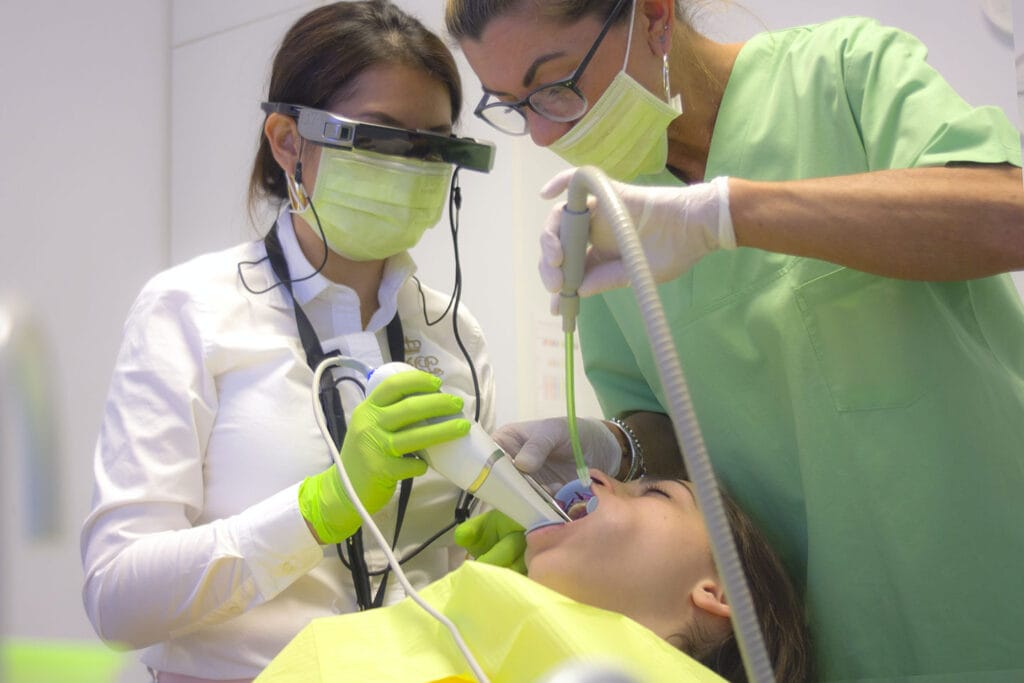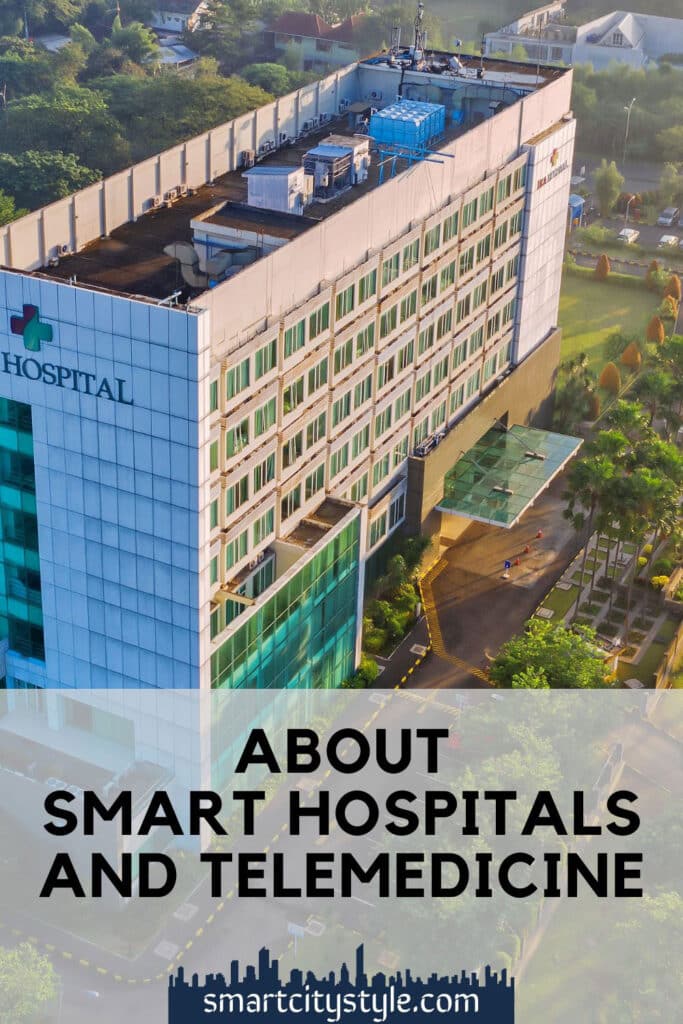Smart Hospital and Telemedicine: Improving Access to Healthcare
Smart hospitals play a vital role in the present and future of healthcare and medical services. They integrate extensive resources and data to provide real-time information for greater efficiency and improved experiences. Smart technology initiatives aim to provide tools that accelerate patient access and care while offering remote monitoring with greater precision and fewer errors.
The Infrastructure of a Smart Hospital
Smart hospitals utilize their existing facilities and optimize management systems, clinical processes, and patient care through software and integrated digital networking that connect vital data to monitor and manage all departments and services more efficiently.
These innovative healthcare organizations track many hospital metrics, like patient flow, operating room occupancy, and the number of beds available, while simultaneously providing accurate records and information for hospital administrators, surgeons, and care teams.
The digital technology framework of a smart hospital provides valuable tools and resources that were not possible previously while giving medical staff and patients greater tools and connections.
These improve the overall operational flow and access to specific patient care and meet the growing demands of the healthcare field. The main layers of a smart hospital solution include access, insight, and compiling data. These essential components improve the not only the patient experience and quality of care but also operational efficiency.
Telemedicine’s Role in Improving Access to Health Care
Telemedicine is an accessible, less expensive method of remotely providing patient care and follow-up treatment. Initially, this form of medical care began in the 1950s, when physicians would visit patients in their homes and reach them by phone to discuss treatment options and medical diagnoses. This method was prevalent in rural areas, where hospitals and clinics are unavailable.

As telemedicine has progressed in recent years, patients, physicians, and specialists can easily share information and updates through computer access and medical devices.
Telemedicine and smart health IT systems offer patients the option of virtual consultations with their doctor at home and avoid waiting at a clinic or hospital for follow-up appointments.
Methods of Telemedicine Services
This remote delivery of healthcare services includes interactive medicine, which gives doctors and patients access to real-time communication while following HIPAA laws.
Monitoring patients remotely allows caregivers to access information outside of a hospital setting. Medical devices collect data like blood pressure, heart rate, and blood sugar levels which is then shared remotely and securely with doctors who can access it from anywhere using devices approved by and connected to the hospital system.
The Benefits of Smart Hospital Technology
As the demand for smart hospital technology increases and medical advancements, legal changes, and processes are implemented into the healthcare system, the need for greater efficiency and accuracy becomes paramount.

Smart hospitals offer the ideal solution, as they integrate connectivity and quick access to information at lower operational costs. There are many benefits to implementing smart hospital technology to improve patient care:
- It strengthens hospital operations and the structure of the healthcare facilities, maintaining electronic health records and greater resilience for better, consistent patient outcomes
- Sustainable, green solutions that include solar panel installations, reducing energy and electrical consumption while improving the local environment
- Greater continuity during emergencies and unexpected disasters
- Precision medicine implements the benefits of artificial intelligence (AI), 3-D digital imaging, robotics, smart hospital beds, and improved clinical workflow
- Fewer errors and improved support for medical care teams, and healthcare providers
Smart hospital technologies provide a much-needed digital transformation that offers immediate solutions with improved cost efficiency while optimizing the hospital setting for long-term goals and better results.

Examples of Smart Hospitals: The Mackenzie Health Network and Cortellucci Vaughan Hospital
The Mackenzie Health Network, which includes the Cortellucci Vaughan Hospital, is the first smart hospital in Canada and an example of healthcare innovation. Many of the advances implemented into a traditional hospital framework appear unchanged to patients and visitors. Many technological advances are built into the background within complex computer and platform systems.
The network operates from two hospitals, Cortellucci Vaughan Hospital and Mackenzie Richmond Hill Hospital, which offer both core and specialized services to the public, an emergency department, and a variety of clinics for outpatient and follow-up treatment.
These digital hospitals are located in the York Region, north of Toronto, and within the Greater Toronto Area, Ontario, Canada, which offers other smart healthcare and telemedicine services.
Telemedicine Services: The Cleveland Clinic
The Cleveland Clinic offers telemedicine and digital health services for various patient treatments. Patients use wearable devices, mobile apps, and smartphone tracking to assess cardiovascular results while implementing treatments continuously.
Like smart hospitals, digital clinics offer in-person and remote care options through a network of healthcare providers and digital technologies connecting experts and patients for better care and safety.

The Cleveland Clinic is an example of how patient care can extend beyond the traditional hospital or clinic setting with virtual appointments and remote monitoring.
Smart Hospitals and Telemedicine Provide Innovative Patient Care Solutions
Aside from improving the cost-efficiency and safety of healthcare systems, smart hospital technology offers an infrastructure that provides greater patient outcomes with better efficiency while supporting a comfortable, convenient setting.
As technology develops, healthcare will continue to evolve to deliver services and care geared toward individual patient treatment. Many hospitals are just beginning to implement smart technology into their infrastructure by embedding interactive devices and operations into their design while maintaining a similar, familiar framework for patients.
Final Thoughts
As the demand for greater healthcare increases, more hospitals around the world will shift toward digital solutions. Smart hospitals offer advantages for cities with fewer technological systems, which can lead other urban industries and communities to develop a similar infrastructure.
While many hospitals only use minimal, smart technological tools, there are many opportunities available to improve the future of healthcare for medical professionals and patients.
Smart hospitals offer a glimpse into a more extensive network of patient care. Secure, easy access to health history, ongoing treatment, medications, and long-term goals can improve patient care while also reducing the overall costs.
Inspired? Pin it!



